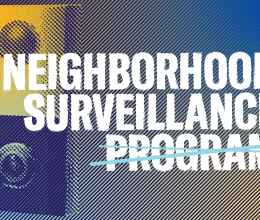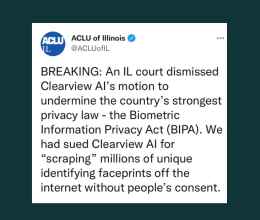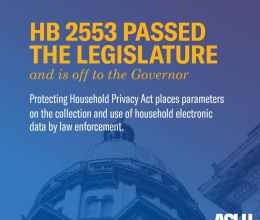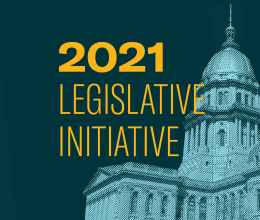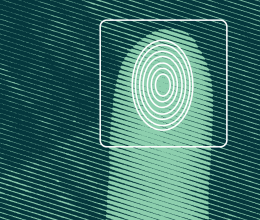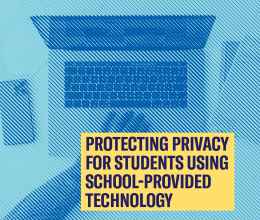
The Illinois Supreme Court heard oral arguments yesterday on the constitutionality of the Illinois Eavesdropping Act which requires consent from all parties if a conversation is recorded, whether or not the conversation is private. The ACLU of Illinois filed amicus briefs on behalf of both of the criminal defendants whose cases were heard. In People v. Clark, the accused was representing himself in a civil proceeding, and recorded a court hearing and a brief conversation with the opposing lawyer, in order to advance his access to the courts. In People v. Melongo, the defendant recorded her phone conversations with a county court reporter and then posted the recordings online, in order to advance her claim of ineffective government services. Ms. Melongo was arrested and imprisoned for 18 months while awaiting the conclusion of her trial. In both of these cases, a trial judge held that people have the right to record these kinds of conversations. The prosecutors appealed these decisions to the state’s Supreme Court. The Courthouse News highlighted portions of the ACLU of Illinois’ brief in support of Ms. Melongo’s claim.
"It is axiomatic that conversational privacy is not advanced by restricting the recording of conversations that are not private," the ACLU's brief states. It added that "few courts have squarely addressed the constitutional implications" of the "delicate balancing of free speech and privacy rights."
"Thus, the Eavesdropping Statute's means do not fit its ends," the ACLU continued.
"It unconstitutionally infringes Ms. Melongo's right to receive, gather, and publicize non-private information, obtained from government officials in the course of their duties which the First Amendment protects."
This is not the ACLU of Illinois’ first case in this area. Last year, we successfully persuaded the federal appellate court that the First Amendment protects the right to audio record on-duty police officers in public places.
